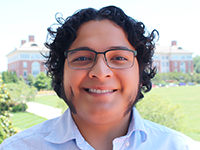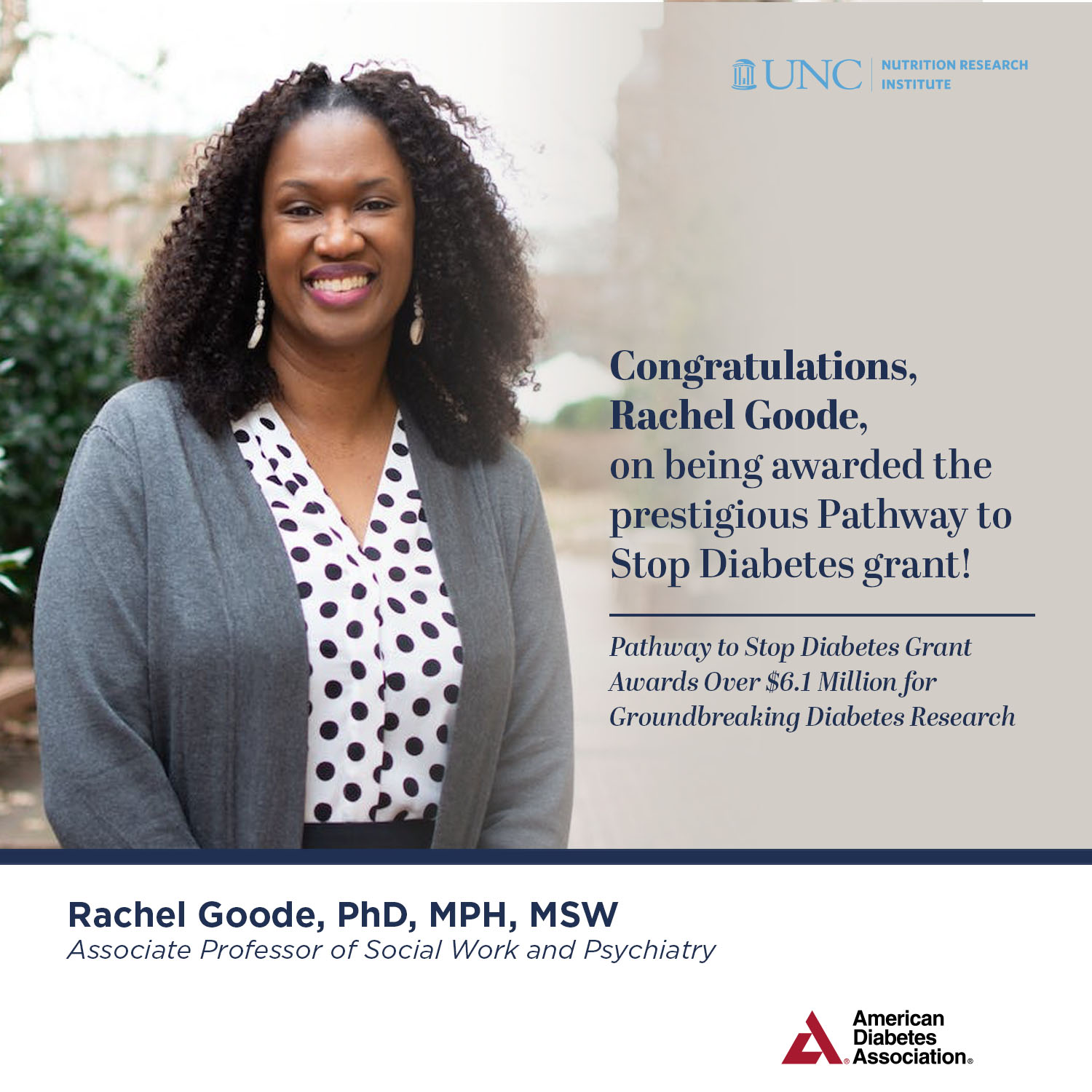Rachel Goode, PhD, MPH, LCSW
Associate Professor of Social Work and Psychiatry
Rachel W. Goode is an Associate Professor at the School of Social Work and an Adjunct Assistant Professor in the Center for Eating Disorder Excellence, Department of Psychiatry, University of North Carolina at Chapel Hill. Dr. Goode received her PhD, MPH, and MSW from the University of Pittsburgh. Her research interests include developing, implementing, and evaluating equitable and community-engaged interventions to treat obesity and eating disorders. Her research has been funded by the National Institute of Health (NIH), National Eating Disorders Association, Magee Womens Research Institute, and the University Research Council at UNC-Chapel Hill. Currently, Dr. Goode is the principal investigator of an NIH Career Development Award (K23) to develop a culturally-relevant digital health tool to treat binge eating and obesity. Additionally, Dr. Goode is a licensed clinical social worker, and has practice experience with the treatment of eating disorders and obesity among clients in university counseling centers, and community-based mental health agencies. She has been fortunate to be the recipient of various awards, including the Oprah Civic Leadership Award, National Health, Lung, Blood Institute (NIH) Research Service Award, and the Outstanding Dissertation Award from the Society of Behavioral Medicine.

Ramine Alexander, PhD, MPH
Research Project Manager, Goode Lab
Ramine Alexander joined the UNC Nutrition Research Institute as Research Project Manager. Dr. Alexander received her Ph.D. and MPH, from Virginia Tech. As an intervention scientist, her research interest includes utilizing Community-Based Participatory Research (CBPR) to improve lifestyle risk factors (i.e., diet and physical activity) that have a direct relevance to obesity and chronic disease. Through CBPR approaches a primary goal of her work is to involve the voice of the community in the research process to promote intervention sustainability. Dr. Alexander has a passion for building health equity, conducting research on the social determinants of health, and using innovative approaches to communicate science.

Tyisha Harper, MBA
Project Coordinator, Goode Lab
Tyisha Harper joined UNC Nutrition Research Institute in December 2021 as a Project Coordinator in the Goode Lab. She is originally for Milwaukee, WI and relocated to the Charlotte area with her new husband. She is excited to learn and develop her research career here. Tyisha likes to travel, go bowling, and spend lots of quality time with her family. Tyisha is motivated by spiritual affirmations and her favorite one is Psalm 46:5, “God is within her, she will not fall; God will help her at break of day.”

Julian Robles
Research Technician, Goode Lab
Julian is a Kannapolis native who is a graduate of UNC Chapel Hill with a B.S. in Biology and a B.A. in Religious Studies. He is a Chancellor's Science Scholar and worked at the NRI as an undergraduate. Julian is a research assistant in Dr. Goode's lab where he is engaging in qualitative research around eating disorders and engaging in the community. He is interested in exploring a possible career in research, but would like to go to medical school to become a pediatric oncologist. Some of Julian's interests include reading, riding motorcycles, hiking, and being a positive impact.
Helping Emotional Eaters Maintain Their Weight: A Promising New Approach
For many adults, eating in response to emotions rather than hunger – known as emotional eating – can lead to unwanted weight gain and increase the risk of serious health conditions like heart disease and diabetes. A new pilot study led by UNC Nutrition Research...
Healthy Eating Starts at the Grocery Store – Let’s Make It Easier
Beyond Affordability: Structural Barriers to Healthy Eating
Grocery shopping is a routine task for many, but for those relying on the Supplemental Nutrition Assistance Program (SNAP), it involves additional considerations—when benefits are available, where to shop, and how to stretch resources while maintaining a balanced...
Rachel Goode, PhD receives Pathway to Stop Diabetes grant
Originally published by University Communications on Tuesday, February 11th, 2025 Rachel Goode, PhD, associate professor and Wallace Kuralt Early Career Distinguished Scholar at the UNC School of Social Work, is one of four winners of the American Diabetes...
Publications 2025
Publications 2024
Publications 2023
Gendered Racial Microagressions and Emotional Eating for Black Young Adult Women: The Mediating Roles of Superwomen Schema and Self-Compassion. (Article accepted for publication)
Coping Behaviors in Response to the COVID-19 Pandemic Among Essential Workers of Color: Latent Classes and Covariates. (Article accepted for publication)
The Impact of COVID-19 on Life Stressors among Essential Workers of Color: A Latent Class Analysis.
Publications 2022
Course and Predictors of Eating Disorder Symptoms in the First Year of the COVID-19 Pandemic.
Eating Disorder in Black Women: Treatment Recommendations and Healthcare Implications.
Longer-term Impact of COVID-19 on Eating Disorders in the United States, Netherlands, and Sweden.
The Impact of COVID-19 on Black Women who Binge Eat: A Qualitative Study.
Publications 2021
Nightly variation in sleep influences self-efficacy for adhering to a healthy lifestyle.
Binge eating and binge-eating disorder in Black women: A systematic review.
The feasibility of a binge eating intervention in Black women with obesity.
African-Americans in standard behavioral treatment for obesity, 2001-2015: What have we learned?





